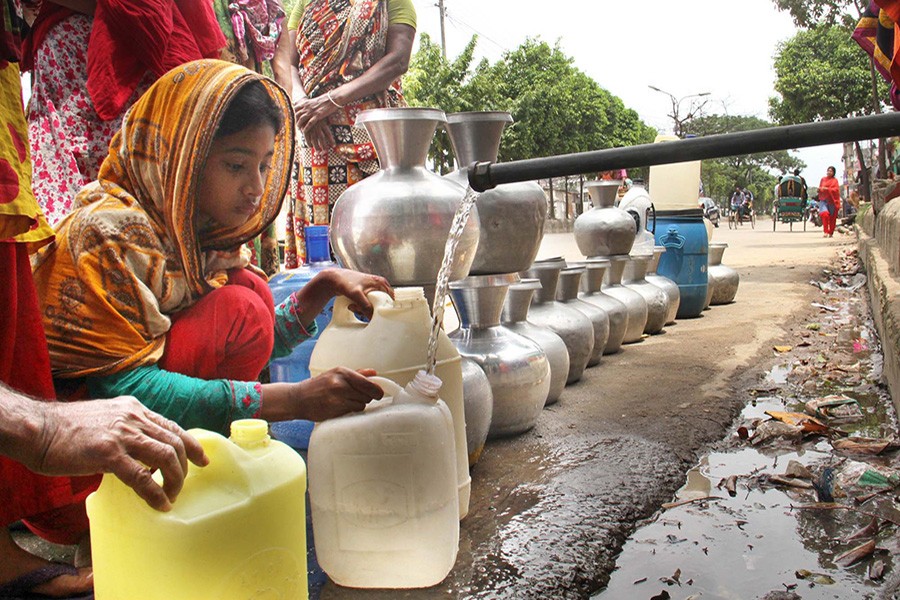Effective financing, strong monitoring, and bridging data gap are essential to help ensure better outcome of development activities related to sanitation and safe water particularly, speakers observed at a workshop on Tuesday.
Keeping this in view, a special programme titled 'TrackFin', aimed at monitoring finance in the sanitation and safe water sector, was launched at the opening session of two-day workshop, held at a city hotel.
Non-profitable organisation WaterAid, with support of The United Nations Children's Fund (UNICEF) andWorld Health Organization (WHO) organised the workshop to discuss various aspects of the 'TrackFin' initiative.
Stakeholders, including government officials, development workers and experts, are taking part in the workshop.
The inaugural session was chaired by chief engineer of Department of Public Health Engineering (DPHE)MdMoniruzzaman.
The representative of WHO to Bangladesh Dr Valeria De Oliveira Cruz, country representative to UNICEF Bangladesh Edouard Beigbeder, country director of WaterAid in Bangladesh MdKhairul Islam and additional chief engineer of the DPHE MdSaifur Rahman attended the opening session, among others.
The workshop was organised to brief the stakeholders about TrackFininitiative under the United Nation's 'Global Analysis and Assessment of Sanitation and Drinking-Water (GLAAS)' programme implemented by the WHO to ensure people's access to safe water.
Speaking on the occasion, Edouard Beigbeder said Bangladesh has made remarkable progress in water and sanitation sector in recent years.
However, the country still needs to address the arsenic contamination issue, he added.
He suggested funding more money to establish large infrastructures to help ensure people's access to safe water and sanitation in the country's remote areas.
In her speech, Dr Oliveira Cruz said Bangladesh should pay more attention to managing sludge and solid waste to minimise water contamination.


